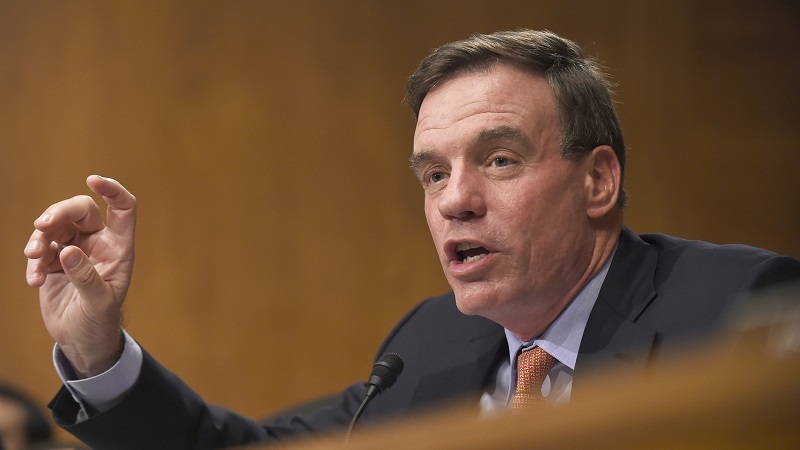
A bipartisan group of senators led by Sen. Mark Warner, D-Va., on March 4 introduced the Democratic Technology Partnership Act, which would create an interagency effort aimed at forming technology partnerships among democratic countries to counter Chinese tech dominance.
The effort would be spearheaded by the United States Department of State and would receive $5 billion of Federal funding to pay for related research projects involving the government, the private sector, and academia. Like-minded U.S. allies could also contribute to funding for the bill’s proposed International Technology Partnership Fund.
Tech areas targeted by the proposed fund include AI and machine learning, 5G and other wireless communications, semiconductor chip-making, surveillance technologies including facial recognition and “censorship software,” and fiber optic cables.
The bill would empower State to seek out and establish partnerships with other democratic countries, with the expressed goal of establishing rules, standards, and protocols for emerging technology. Sens. Bob Menendez, D-N.J.; Michael Bennett, D-Colo.; John Cornyn, R-Tex.; Marco Rubio, R-Fla.; Ben Sasse, R-Neb.; Chuck Schumer, D-N.Y.; and Todd Young, R-Ind. all joined Warner in introducing the bill.
“In order to compete and counter the expansion of Chinese dominance in critical technology sectors, we need to create a strategy that leverages the power of American partnerships to protect and advance our technological edge,” Sen. Warner said in a press release. “This bipartisan legislation will help foster partnerships among the U.S. and like-minded democratic countries to better protect and compete against China in critical emerging technologies while helping set global rules, standards, and protocols for the market.”
Beyond the creation of the office, the bill also would lay out guidelines for the partnership, establish the international fund, and create a public-private advisory board. The partnership’s objectives are:
- “coordinate on technology policies and standards;
- coordinate policies with the private sector to ensure private sector-led, politically neutral, standards processes;
- adopt shared data privacy, data sharing, and data archiving standards;
- create shared policies around export controls, investment screening, and technology transfer;
- coordinate on ensuring the resiliency of supply chains in critical technology areas;
- coordinate on supply chains as relates to semiconductor fabrication;
- facilitate partnerships and cooperation between universities and the private sectors;
- coordinate investments and co-financing in targeted countries with the goal of promoting secure and resilient digital infrastructure and privacy-enhancing technologies; and
- facilitate information sharing among partner countries around technology transfer and the use of technologies by authoritarian governments to erode democracies.”
